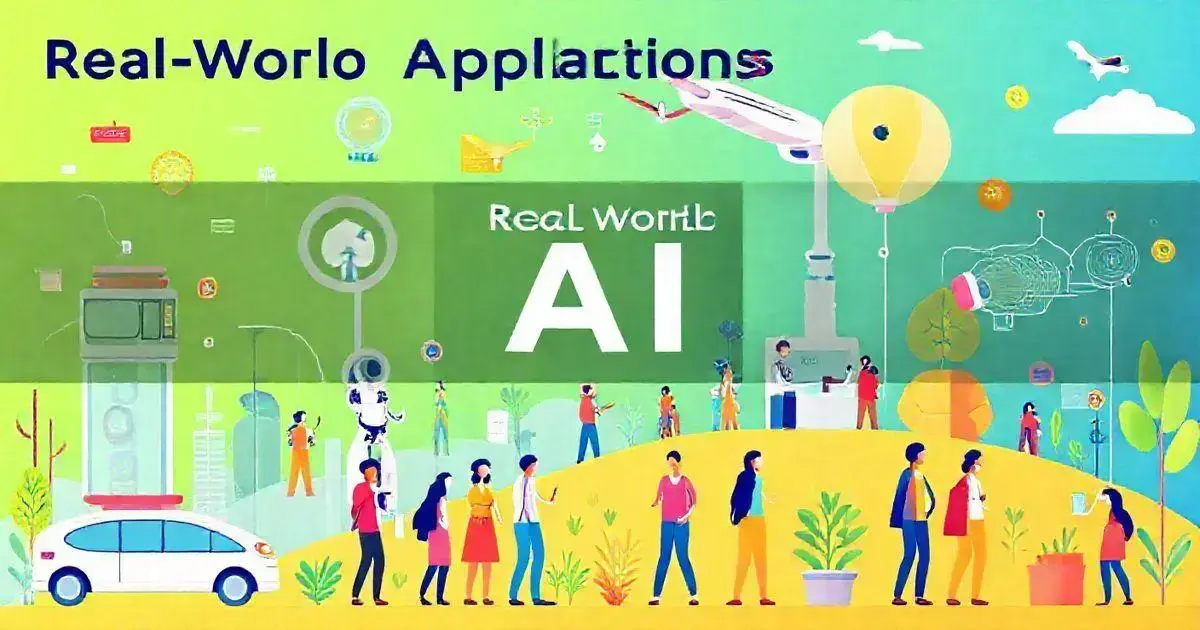Creating artificial intelligence is a groundbreaking pursuit that holds the potential to revolutionize countless fields. From healthcare to finance, AI is reshaping the way we solve problems and approach challenges.
To embark on the journey of building AI, it’s essential to grasp the fundamental concepts and tools involved. Understanding algorithms, data processing, and machine learning frameworks are key steps in this process.
Whether you’re looking to innovate or optimize existing systems, learning how to create artificial intelligence equips you with the skills to drive impactful change. Continue reading to unlock the possibilities AI can bring to your projects!
What is Artificial Intelligence?
Artificial Intelligence (AI) refers to the simulation of human intelligence in machines designed to think and learn like humans. It includes capabilities such as problem-solving, natural language processing, and pattern recognition. As AI becomes more integrated into modern society, its influence transforms how we work, communicate, and interact with technology.
With the growing demand to create artificial intelligence systems, this field offers exciting opportunities for innovation and impact.
AI can be categorized into two types:
Narrow AI: Also known as weak AI, it focuses on performing specific tasks, like voice recognition or playing chess.
General AI: This theoretical form of AI aims to reason and understand the world as humans do but remains largely conceptual at this stage.
The applications of AI are vast and span multiple industries, from healthcare to finance. For instance, AI algorithms analyze large datasets to help doctors diagnose diseases early or predict stock market trends. Learning to create artificial intelligence tools and systems can open doors to career advancements and enable businesses to optimize operations.
In a world increasingly driven by AI, understanding its potential is essential for harnessing its benefits effectively.
The Importance of AI Today

Artificial Intelligence (AI) is crucial in today’s world, shaping how we live and work.
AI technologies assist in tasks across various industries, achieving efficiency and accuracy.
From healthcare to finance, AI enhances decision-making, optimises processes, and personalises user experiences.
Companies that adopt AI stay competitive, as it enables them to innovate continuously.
The increasing reliance on AI signals a shift in various fields, making it essential for individuals and businesses to understand its significance and applications.
Key Components of AI
Key components of Artificial Intelligence (AI) include machine learning, natural language processing, and computer vision.
Machine learning allows systems to learn from data and improve over time without being explicitly programmed.
Natural language processing enables machines to comprehend and respond to human language, bridging communication gaps.
Computer vision allows computers to interpret visual information from the world, making sense of images and videos.
These components work together to create intelligent systems capable of solving complex problems, enhancing user experience, and automating tasks effectively.
Steps to Create Your Own AI

Creating your own Artificial Intelligence (AI) involves several important steps. First, you need to define the problem you want your AI to solve. Understanding your objectives is vital to choose the right approach.
Next, gather and prepare data; high-quality data is essential for training your AI models. Data cleaning helps improve the accuracy of your AI.
Then, select the appropriate algorithms for your project. Popular algorithms include decision trees and neural networks.
After that, you will need to train your models using the prepared data, adjusting parameters to improve performance.
Once trained, test your AI system in real-life scenarios to ensure it meets your expectations.
Finally, it’s important to continuously monitor and improve the model as new data becomes available. With patience and perseverance, you can successfully create AI tailored to your needs.
Common Algorithms Used in AI
Common algorithms used in Artificial Intelligence (AI) play a significant role in enabling machines to learn and make decisions.Some of the most widely used algorithms include linear regression, decision trees, and neural networks.
Linear regression is often used for predicting continuous outcomes and identifying relationships between variables.Decision trees offer a clear visual representation of decision rules, making them easy to understand.Neural networks are inspired by the human brain and are particularly effective for complex tasks like image recognition and natural language processing.
By mastering these algorithms, you can build powerful AI applications that can learn from data and improve over time.
AI Development Tools and Resources

To successfully create artificial intelligence, developers need access to the right tools and resources. Popular frameworks like TensorFlow and PyTorch are widely used for building machine learning models, offering powerful capabilities for both production and research purposes. Their flexibility and robust functionalities make them go-to choices for AI development.
APIs such as Google Cloud AI and AWS AI Services provide pre-built features that save time and effort, allowing developers to focus on customization. These platforms simplify complex tasks, enabling even smaller teams to effectively create artificial intelligence solutions tailored to their needs.
Additionally, online platforms like Coursera and edX offer courses that cover AI fundamentals and advanced techniques. Active communities and thorough documentation for these tools provide valuable support for troubleshooting and adopting best practices.
Leveraging these resources not only enhances developers’ skills but also accelerates the creation of efficient and impactful AI applications.
Challenges in AI Creation
The journey to create artificial intelligence is filled with significant challenges that can hinder progress. One of the primary concerns is data quality; inaccurate or incomplete data can lead to unreliable AI models. Moreover, bias in datasets can result in unfair outcomes, highlighting the importance of ensuring diverse and representative data for ethical AI development.
Technical hurdles are another major obstacle. Selecting appropriate algorithms and tuning parameters require expertise and can be overwhelming for many developers. Furthermore, the computational resources needed to train sophisticated AI models are often costly, creating barriers for smaller teams striving to create artificial intelligence solutions.
Regulatory and ethical considerations also demand attention. Misuse of AI or lack of compliance with evolving regulations can pose risks to both users and developers. Addressing these challenges through better tools, practices, and policies is essential for deploying effective and responsible AI systems that drive progress.
Real-World Applications of AI

Real-world applications of Artificial Intelligence (AI) are revolutionizing industries, making processes more efficient and outcomes more effective. In healthcare, AI supports doctors by analyzing medical data to deliver precise diagnoses, demonstrating the growing need to create artificial intelligence systems tailored to complex challenges.
The finance industry leverages AI for tasks such as fraud detection and automating trading, ensuring security and efficiency. In retail, AI enhances customer experiences by personalizing shopping recommendations, driving customer satisfaction and loyalty.
AI also plays a crucial role in transportation, with self-driving cars improving safety and efficiency on the roads. In manufacturing, predictive maintenance powered by AI minimizes downtime and reduces costs, optimizing production. These advancements highlight the importance of efforts to create artificial intelligence tools that adapt to diverse industries.
From healthcare to manufacturing, AI is no longer just a buzzword—it is an essential tool transforming how industries operate and innovate.
The Future of Artificial Intelligence
The future of Artificial Intelligence (AI) is filled with groundbreaking advancements and exciting possibilities. With the ability to enhance accuracy and efficiency through machine learning, AI systems are poised to transform industries and daily life. Efforts to create artificial intelligence that seamlessly integrates into various applications will be key to unlocking this potential.
Natural language processing is set to improve further, enabling more natural and effective communication between humans and machines. In transportation, autonomous vehicles powered by AI could reduce accidents and optimize traffic flow. Similarly, healthcare stands to gain significantly, with AI aiding in diagnostics and personalized treatments for better patient outcomes.
As AI becomes increasingly integrated into our lives, ethical considerations grow in importance. Ensuring that the drive to create artificial intelligence aligns with principles of fairness and benefit to society is essential for a sustainable future. The path ahead for AI is bright, offering countless opportunities to improve and innovate across various domains.
FAQ – Frequently Asked Questions about Artificial Intelligence
How can task automation benefit my small business?
Task automation frees your team from repetitive activities, increasing productivity and allowing them to focus on more strategic tasks.
What tools can I use for data analysis?
There are various tools available, such as Google Analytics, Tableau, and Microsoft Power BI, that help collect and interpret valuable data.
What are chatbots and how do they improve customer service?
Chatbots are virtual assistants that can answer questions and resolve issues at any time of the day, enhancing customer experience and freeing up your team.
How can I personalise customer experience?
By analysing data, you can better understand customer preferences and offer personalised recommendations and promotions.
What is the importance of customer feedback?
Feedback is essential for identifying areas that need improvement and adjusting your service strategy, ensuring customer satisfaction.
Is artificial intelligence accessible for small businesses?
Yes, there are various affordable and scalable AI solutions that can be implemented by small businesses to enhance efficiency and service.
Check out our article on Cybersecurity to discover strategies for safeguarding your online presence and protecting your personal information.
